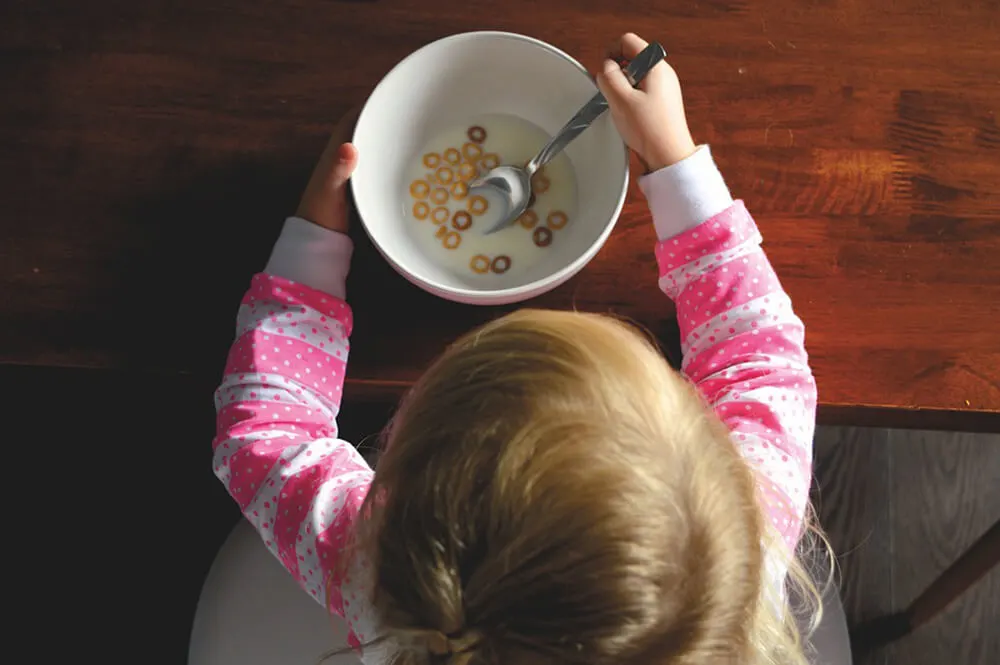You’ve likely heard the old saying, “Now that baby is eating solid foods, I can finally start feeding her.” But it might surprise you to learn that this adage isn’t precisely true. While the age at which babies are introduced to solids varies, typically by 4-6 months, they have developed enough muscle control and digestive enzymes to handle more complex food combinations. So when your doctor says it’s time to start introducing new tastes into your baby’s life, what kinds of foods should you keep an eye out for?
In this article, we’ll look at what babies can start eating and give you some tips on the food they shouldn’t eat.

Solid Foods for Babies: What Can They Eat?
One of the first things parents want to know when their baby is ready for solid foods is, “What can my baby eat?” The short answer given by MommyHood101 is that almost anything goes – be sure to start with easy-to-digest foods and watch for any allergic reactions. Here are a few ideas to get you started:
Cereal:
Start with single-grain rice or with iron-fortified cereal mixed with breastmilk or formula. Mix it to make a thin gruel and offer it to your baby with a spoon. Avoid sugary breakfast cereals, which can set your child up for unhealthy eating habits down the road.

Vegetables:
Once your baby has mastered cereal, start introducing vegetables like green beans, mashed peas, and carrots. Some babies will turn up their noses at vegetables, but others love them. Try to make sure you offer a veggie at every mealtime, as it can be challenging for little ones to get all the nutrients they need from just fruit and cereal alone. Also, be sure to steam or boil vegetables until they are soft enough for your baby to chew and swallow.
Fruits:
Another early favorite for babies is fruits. Start with mashed apples, pears, or bananas, then move on to other fruits like strawberries, mango, or papaya. Just like vegetables, offer fruit at every mealtime. As your baby gets older, give them whole pieces of fruit to chew on. Offer them one type of fruit at a time so she doesn’t develop a preference for sugary foods over other more nutritious foods.
Protein Sources:
When it comes to protein, babies need animal proteins such as eggs and meat until they’re about seven months old – after that point, they can start eating legumes like beans. Be sure to take things very slowly with any new food – introduce each fresh food one at a time and wait 3-5 days before submitting another. This way, you’ll be able to identify any allergies your baby might have quickly.
Solid Foods for Babies: What Shouldn’t They Eat?
While the saying maybe, “Now that the baby is eating solid foods, I can finally start feeding her,” it’s important to remember that there are some foods babies should not eat. Here are a few common examples:
Honey:
Honey may contain botulism spores that can cause serious illness in infants. Therefore, babies under one year of age should not be given honey or any products containing honey. However, when they reach their first birthday, you can reintroduce honey into your child’s diet – make sure the stuff you buy isn’t too sweet.
Whole nuts:
Children under four years old should avoid whole nuts (especially peanuts). Whole nuts can be choking hazards or cause your baby to choke, so it’s best to avoid nuts until your child is much older. Grind peanuts before offering them to your child, or try other kinds of nut butter instead. Sticking foods that are easy to cut into small pieces like Teddy Grahams is now.
Raw Meat:
While some pediatricians may recommend giving babies under seven months old meat earlier than 4-6 months, you should never give them raw meat. Why? Raw meats could contain parasites harmful for young children and the elderly – if the meat isn’t thoroughly cooked before serving, don’t serve it at all. Once your baby is over seven months old, cook meat until juices run clear and offer small portions (about 2 ounces) at a time.
Salt:
Babies should not consume large amounts of salt, as it can cause them to become dehydrated. Avoid adding salt to your baby’s food and try other herbs and spices instead. If you’re using processed foods or pre-made baby food, check the ingredients for added salt.
Introducing solid foods to your baby can be a fun and exciting experience – be sure to proceed with caution and consult your pediatrician if you have any questions. With a little bit of patience and some easy-to-digest food options, your baby will be on its way to a lifetime of good health. The best way to avoid potential pitfalls is to introduce foods slowly and see how the baby’s system reacts. Before long, the baby will be running circles around you.
Related Resources for Parents:

Babybjorn Baby Carriers: A good baby carrier can be expensive but is so worth it. We have used a Babybjorn carrier with 3 kids for almost a decade – and have just recently sold it. Check out our favorite comparison on Mamma’s Buzz: Babybjorn Harmony vs One Air.

Cheap Gifts for Kids: Fun & Unique Ideas: Kids are so much fun to buy gifts for! My problem is always narrowing down my ideas because there are so many things that kids find fun and exciting! The really great news is that you don’t have to spend a ton of money. It’s not too hard to find cheap gifts for kids that they’ll love!
